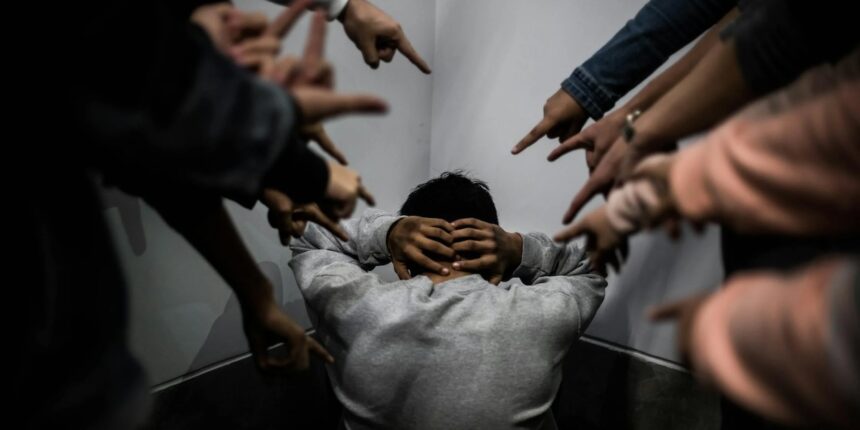Today, only 32 countries have a comprehensive legal framework dedicated to combating school violence. On the occasion of the International Day Against Violence and Bullying in Schools, including Cyberbullying (November 7), UNESCO is calling for enhanced protection for students against physical, verbal, and psychological abuse, especially in the face of rising discrimination and violence related to gender and sexual identity.
Nearly one in three students worldwide reports being physically assaulted at least once during the year. Every month, bullying affects one in three students, and cyberbullying is increasingly prevalent, now impacting one in ten children. These issues have serious consequences, not only on learning but also on students’ mental health. Victims of bullying are twice as likely to suffer from severe loneliness, insomnia, and suicidal thoughts.
School violence disproportionately affects certain groups based on gender, sexual orientation, socioeconomic status, and other identity markers. Girls remain particularly vulnerable, with up to 25% of teenage girls experiencing gender-based violence, and up to 40% of these incidents occurring at school. Globally, 42% of young lesbian, gay, bisexual, and transgender individuals have been « ridiculed, mocked, or threatened at school, » mainly by other students, because of their sexual orientation or gender identity.
Every child should feel respected, accepted, and safe at school to be able to learn and thrive. Yet, many students still fall victim to violence and bullying. And in the age of social media, these issues don’t stop at the school gates; they continue and escalate online. This International Day should serve as a wake-up call for collective action to make the fight against violence and bullying a priority in education, » stated Audrey Azoulay, UNESCO Director-General.
Audrey Azoulay, Directrice générale de l’UNESCO
UNESCO Provides a Roadmap for States
UNESCO’s new report, Learning and Thriving in Safety: Ending School Violence in and through Education (published in English), released this Wednesday, highlights the essential role of public policies, standards, and multisectoral cooperation in curbing these issues – noting that only 32 countries (16%) have established a comprehensive legal framework to address school violence.
To support efforts in this area, UNESCO has conducted a global assessment of the situation in recent years. The Organization has also provided its member states with guidelines, thematic notes, and a guide for teachers to combat gender-based violence in schools. It has also produced dedicated recommendations on school bullying and a technical note on the critical role of teachers.
UNESCO promotes an approach that involves all stakeholders, from students and teachers to families and the local community as a whole, to create safe and respectful learning environments.
Supported Projects Across All Regions
The Organization supports numerous field projects that put its recommendations into practice, notably in Africa and Asia through the Connect with Respect program. This initiative helps prevent gender-based bullying by encouraging students to treat each other respectfully and enabling victims to know where to turn for help. In West Africa, UNESCO has also trained over 20,000 educators to create a violence-free school environment.
In October 2024, UNESCO launched a new project with France and the European Commission focusing on students’ mental health in France. This two-year project aims to enhance the skills of educational teams in this area and establish support networks for students, bringing together teachers and educators, healthcare staff, and social services.
Efforts must also focus on educational content to ensure curricula promote values of peace and respect for others. This is the intent behind UNESCO’s Recommendation on Education for Peace, Human Rights, and Sustainable Development, unanimously adopted by its 194 member states a year ago. Today, UNESCO is working with its member states to implement this recommendation so that schools serve as a strong barrier against hate speech and discrimination – which are often the root of bullying and social rejection.
The International Day Against Violence and Bullying in Schools, including Cyberbullying, was established by UNESCO in 2019. It is held on the first Thursday of every November.
Source: UNESCO, press release of November 6, 2024








